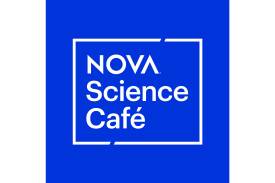Forum Network
Free online lectures: Explore a world of ideas

NOVA Science Café is a free monthly meetup for science discussions, NOVA film screenings, and community events in the WGBH studio at the Boston Public Library, and other locations across the city. Sponsored by NOVA, the science documentary series on PBS, NOVA Science Café is part of an international network of science cafés with over 350 active cafés in local communities across the U.S. and abroad. Find a Science Café near you!